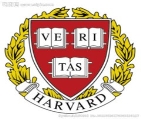0 130530 130538 130544 130548 130554 130556 130560 130566 130568 130574 130580 130584 130586 130590 130596 130598 130604 130608 130610 130614 130616 130620 130622 130624 130625 130626 130628 130629 130630 130632 130634 130638 130640 130644 130646 130650 130656 130658 130664 130668 130670 130674 130680 130686 130688 130694 130698 130700 130706 130710 130716 130724 151629


